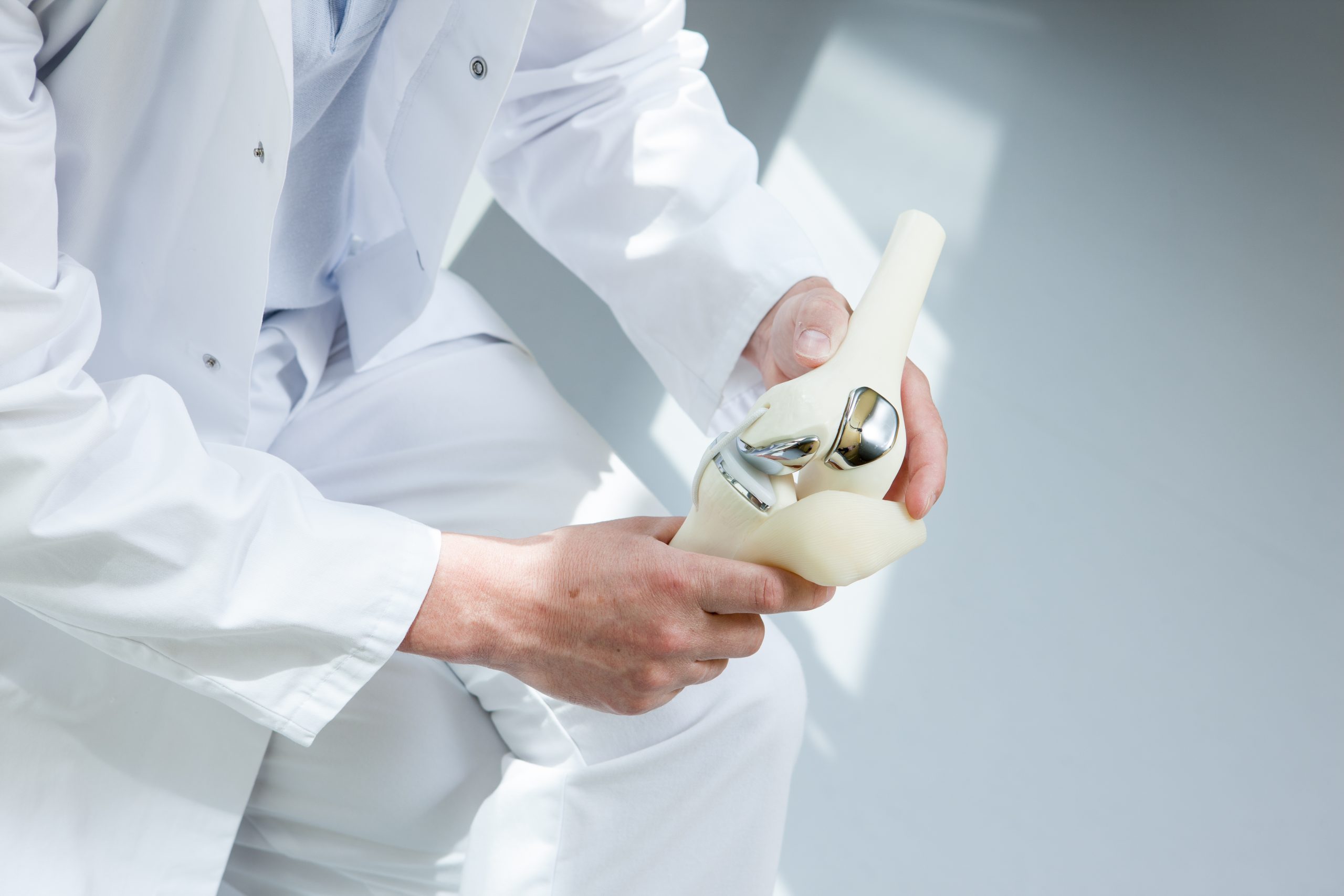Total knee replacement: what to expect, surgery and recovery

Total knee replacement
Knee pain is a common complaint that affects people of all ages. It may be the result of a sports injury, ageing or repeated stress on the knee. Medical conditions — including arthritis, gout and infections — can also cause knee pain. Knee osteoarthritis (OA) can affect your every move: walking, climbing stairs, even sitting or lying down. Although many types of minor knee pain respond well to non-surgical treatments, sometimes a Total Knee Replacement (TKR) is the best option.
Total knee replacement surgery (arthroplasty) explained
Total Knee Replacement is one of the most commonly surgeries performed in orthopedics. It involves making a cut on the front of the knee, removing approximately 1cm of the femur (thigh bone) and 1cm of the tibia (shin bone), and filling the space with an artificial joint made of metal (often cobalt chrome alloy) and plastic (polyethylene). Patient-reported outcomes are shown to improve dramatically with respect to pain relief, functional restoration, and improved quality of life.
Reasons for knee replacement include:
- Knee pain that limits your daily activities e.g. walking, working, recreation
- Knee pain is present while resting, day or night
- Long-lasting knee inflammation and swelling that doesn’t get better with rest or medications
- Degenerative joint disease of the knee (osteoarthritis)
- Physical therapy, anti-inflammatory medications, joint injections, or less invasive surgeries, haven’t worked.
Total knee replacement surgery (arthroplasty) – what to expect
If you or someone close to you is due for total knee replacement surgery, you may be a little anxious about the process and not quite sure what to expect. For most knee replacements, you will be admitted to hospital on the same morning as surgery. Most patients have a spinal anaesthetic and are sedated, so that they drowsy and unaware of operation being performed. The surgery will take around 1 – 1.5 hours. Medication will be prescribed for pain management as well as preventing infection and blood clots. You may have a catheter inserted into your bladder at the time of surgery. This will be removed the following morning. You will have access to a mini exercise bike on the ward, which you should use regularly to promote your rehabilitation.
Total knee replacement surgery (arthroplasty) – recovery time
You will be walking with the help of a physiotherapist on the same day or following day after surgery. You will be in hospital for about 3 days, but you can go home earlier if you are safe to do so. The wound is closed with absorbable sutures. Keep the wound covered for 14 days, until it has fully healed.
Daily exercises to bend and straighten the knee, including the use of a mini exercise bike is strongly recommended to help with rehabilitation and minimize stiffness (mini exercise bikes available for purchase at LMcG Orthopaedics consulting rooms). Regular painkillers will be needed for a few weeks after surgery.
Patients often return to work about 7 weeks after surgery.
Make sure you have some family/friends available to provide support with shopping, house cleaning etc. for the first few weeks after surgery.
References
